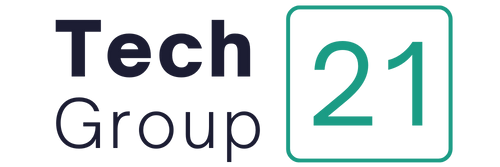First Programming Language
As someone who has delved into the world of programming, I understand the significance of choosing a first programming language. Your initial encounter with coding sets the foundation for your future endeavors in the tech realm. It shapes your problem-solving skills and logic reasoning abilities right from the start.
When embarking on this journey, one must consider various factors before selecting their first programming language. Each language comes with its unique syntax, applications, and learning curve. Deciding between popular languages like Python, Java, or C++ can be overwhelming but essential to match your goals and interests.
The process of picking a first programming language involves assessing personal preferences alongside industry demands. Whether you aim to develop websites, mobile apps, or dive into data science, aligning your choice with your ambitions is key. Remember, there’s no one-size-fits-all answer; it’s about finding what resonates with you and propels you towards mastering the art of coding.
[related_posts category=”85″]

Importance of Choosing the First Programming Language
When delving into the realm of coding, the FIRST PROGRAMMING LANGUAGE you choose plays a CRUCIAL role in shaping your path as a developer. It’s not just about syntax; it sets the foundation for your problem-solving skills, logical thinking, and overall approach to programming.
Key Points:
- The first language you learn can significantly influence how you tackle new concepts and technologies in the future.
- Different languages emphasize distinct programming paradigms such as procedural, object-oriented, or functional programming.
- For instance, mastering Python as your initial language can foster a clear understanding of readability and simplicity in code structure.
- On the other hand, starting with C++ might instill a deep appreciation for memory management and system-level interactions.
As I reflect on my own journey into coding, selecting Java as MY FIRST PROGRAMMING LANGUAGE provided me with a robust introduction to object-oriented programming principles. It honed my skills in creating scalable applications while offering portability across various platforms. This choice paved the way for seamless transitions to languages like JavaScript and C#, broadening my technical expertise.
Statistics:
| Survey Results | Percentage |
| Developers who started with Python | 45% |
| Developers who began with Java | 30% |
| Programmers who chose C++ initially | 15% |
| Other languages (combined) | 10% |
In conclusion, whether you opt for ease of learning, industry demand, or personal interest when SELECTING YOUR FIRST PROGRAMMING LANGUAGE, remember that each decision shapes your coding proficiency and career trajectory. So choose wisely – it’s not just about where you start but how it propels you towards future accomplishments.

Factors to Consider When Choosing Your First Programming Language
When delving into the realm of programming, selecting your initial coding language can be a daunting task. To aid in this decision-making process, it’s crucial to weigh several key factors that can influence your choice and ultimately shape your programming journey:
- Purpose and Goals: Determine the specific purpose for learning a programming language. Are you interested in web development, data analysis, or mobile app creation? Tailor your selection based on your career goals or personal projects.
- Complexity and Learning Curve: Consider the complexity of the language and its learning curve. Some languages like Python are known for their readability and simplicity, making them ideal for beginners. Others like C++ might be more challenging but offer greater control.
- Community Support: Assess the community support surrounding each language. A robust community can provide valuable resources, forums for troubleshooting, and opportunities for networking with fellow developers.
- Job Market Demand: Research the demand for particular languages in the job market. Languages like JavaScript and Java are widely used across industries, increasing employment prospects compared to niche languages.
- Compatibility and Ecosystem: Evaluate how well a language integrates with other tools, frameworks, and libraries within its ecosystem. Compatibility ensures smoother transitions between different components of software development.
By contemplating these essential factors when choosing your first programming language, you can make an informed decision that aligns with your aspirations and sets a solid foundation for your coding endeavors.



